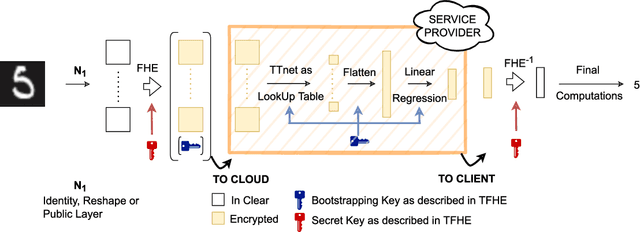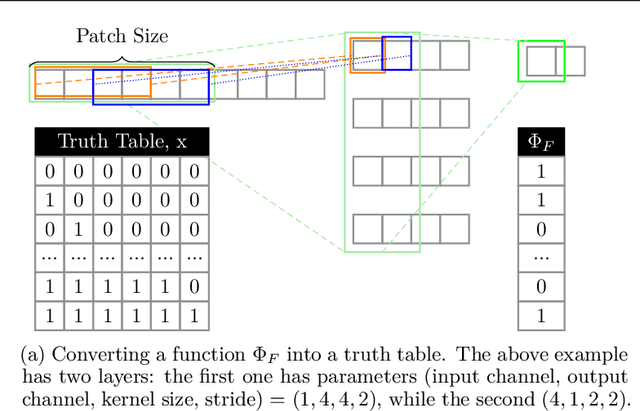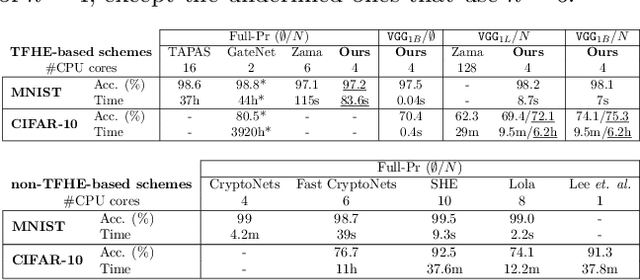Tristan Guérand
Neural Network-Based Rule Models With Truth Tables
Sep 18, 2023Abstract:Understanding the decision-making process of a machine/deep learning model is crucial, particularly in security-sensitive applications. In this study, we introduce a neural network framework that combines the global and exact interpretability properties of rule-based models with the high performance of deep neural networks. Our proposed framework, called $\textit{Truth Table rules}$ (TT-rules), is built upon $\textit{Truth Table nets}$ (TTnets), a family of deep neural networks initially developed for formal verification. By extracting the set of necessary and sufficient rules $\mathcal{R}$ from the trained TTnet model (global interpretability), yielding the same output as the TTnet (exact interpretability), TT-rules effectively transforms the neural network into a rule-based model. This rule-based model supports binary classification, multi-label classification, and regression tasks for tabular datasets. Furthermore, our TT-rules framework optimizes the rule set $\mathcal{R}$ into $\mathcal{R}_{opt}$ by reducing the number and size of the rules. To enhance model interpretation, we leverage Reduced Ordered Binary Decision Diagrams (ROBDDs) to visualize these rules effectively. After outlining the framework, we evaluate the performance of TT-rules on seven tabular datasets from finance, healthcare, and justice domains. We also compare the TT-rules framework to state-of-the-art rule-based methods. Our results demonstrate that TT-rules achieves equal or higher performance compared to other interpretable methods while maintaining a balance between performance and complexity. Notably, TT-rules presents the first accurate rule-based model capable of fitting large tabular datasets, including two real-life DNA datasets with over 20K features. Finally, we extensively investigate a rule-based model derived from TT-rules using the Adult dataset.
TT-TFHE: a Torus Fully Homomorphic Encryption-Friendly Neural Network Architecture
Feb 03, 2023



Abstract:This paper presents TT-TFHE, a deep neural network Fully Homomorphic Encryption (FHE) framework that effectively scales Torus FHE (TFHE) usage to tabular and image datasets using a recent family of convolutional neural networks called Truth-Table Neural Networks (TTnet). The proposed framework provides an easy-to-implement, automated TTnet-based design toolbox with an underlying (python-based) open-source Concrete implementation (CPU-based and implementing lookup tables) for inference over encrypted data. Experimental evaluation shows that TT-TFHE greatly outperforms in terms of time and accuracy all Homomorphic Encryption (HE) set-ups on three tabular datasets, all other features being equal. On image datasets such as MNIST and CIFAR-10, we show that TT-TFHE consistently and largely outperforms other TFHE set-ups and is competitive against other HE variants such as BFV or CKKS (while maintaining the same level of 128-bit encryption security guarantees). In addition, our solutions present a very low memory footprint (down to dozens of MBs for MNIST), which is in sharp contrast with other HE set-ups that typically require tens to hundreds of GBs of memory per user (in addition to their communication overheads). This is the first work presenting a fully practical solution of private inference (i.e. a few seconds for inference time and a few dozens MBs of memory) on both tabular datasets and MNIST, that can easily scale to multiple threads and users on server side.
 Add to Chrome
Add to Chrome Add to Firefox
Add to Firefox Add to Edge
Add to Edge